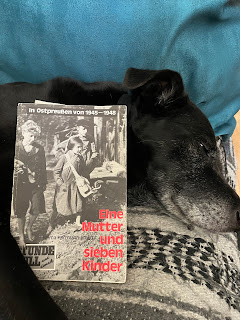I heard a repeat broadcast on CBC radio this past Victoria Day where Rachel Phan was interviewed about her new memoir, Restaurant Kid. The conversation struck some of the same notes played in my middle grade novel, Waltraut. Similar tones included the immigrant school lunch, the busy immigrant parents, the guilt, the shame, the lack of connection between parents and the very children they’re making such self-sacrifices for. Rachel Phan’s family has a Chinese/Vietnamese background. During her childhood, she lacked understanding of her family's challenging and traumatic past. As a restaurant kid she felt her basic needs were often overlooked as her ‘hard-working’ parents put all their energy into the restaurant.
Back in March, I attended a 100th birthday celebration in a newcomer’s ethnic restaurant. Jimmy (his Canadianized name) comes from Pakistan. Along with his wife and five children, the restaurant is his dream of success. Let me share a wee bit of the fascinating story behind Jimmy’s Pakistani restaurant, Barbecue Hut, here in Winnipeg at 445 Notre Dame Avenue.
 |
| Irma, Jimmy, his wife and 4 of his 5 children |
Jimmy was flying solo to Canada from Pakistan when he sat beside my friend’s mom, “Irma,” once a post-Second World War immigrant from Schlesien (now part of Poland). The flight was long and the two travellers struck up a friendship. Imagine: a young man sets out to improve his fortunes in a foreign country and meets Irma, a little old lady returning to Canada after visiting her daughter (my friend, who’d been living in the Middle East). Irma invites Jimmy to stay at her place until he gets settled. She opens up her tiny apartment and her life to him. Weeks turn into months ... turn into years. Finally, after much hard work along with Irma’s generosity, he’s ready to bring his wife and young children to Canada, because Jimmy now has his own restaurant—the Barbecue Hut.
 |
| Irma turns 100! |
Back in March, Irma from Schlesien, turned 100 and Jimmy hosted a wonderful birthday party for her in his authentically furnished Pakistani restaurant. I was privileged to be an invited guest. It was a wonderful occasion to celebrate life, along with the dreams of immigration, and the power of kindness and friendship … with some excellent, traditional Pakistani food.
Seriously good food and a story to warm your heart.
 |
| Barbecue Hut, 445 Notre Dame Avenue in Winnipeg |
And now on to some seriously bad poetry, but with well-meaning enthusiasm.
Want to eat some ‘real’ good food, but …
Not sure where to go?
You should try the Barbecue Hut.
Enjoy your life … take it slow.
Tell me again ... where and what?
Best food in town at the Barbecue Hut!
But, but, but? ... no but!
Get your butt out of your rut …
And try, just try, the Barbecue Hut!



















































